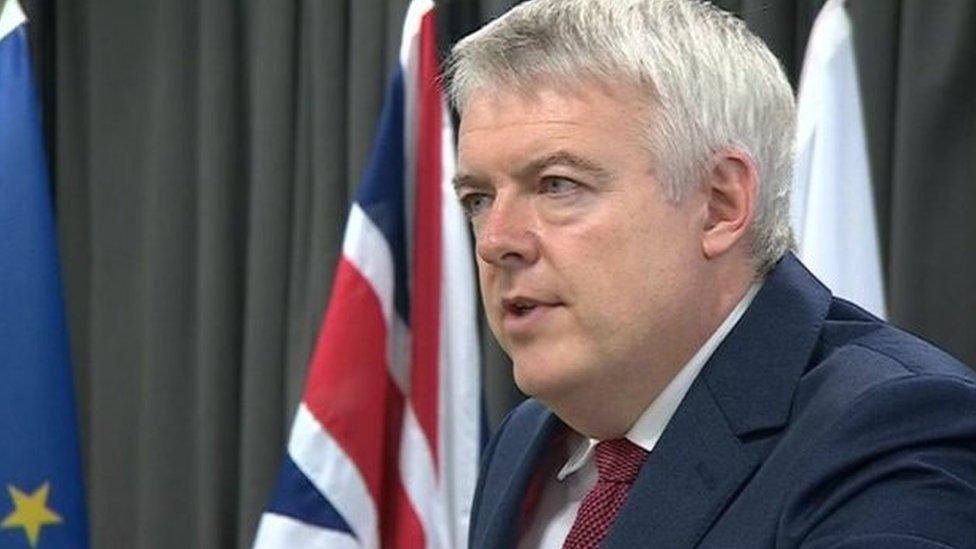Brexit: Radical change needed to save UK, Carwyn Jones says
- Published
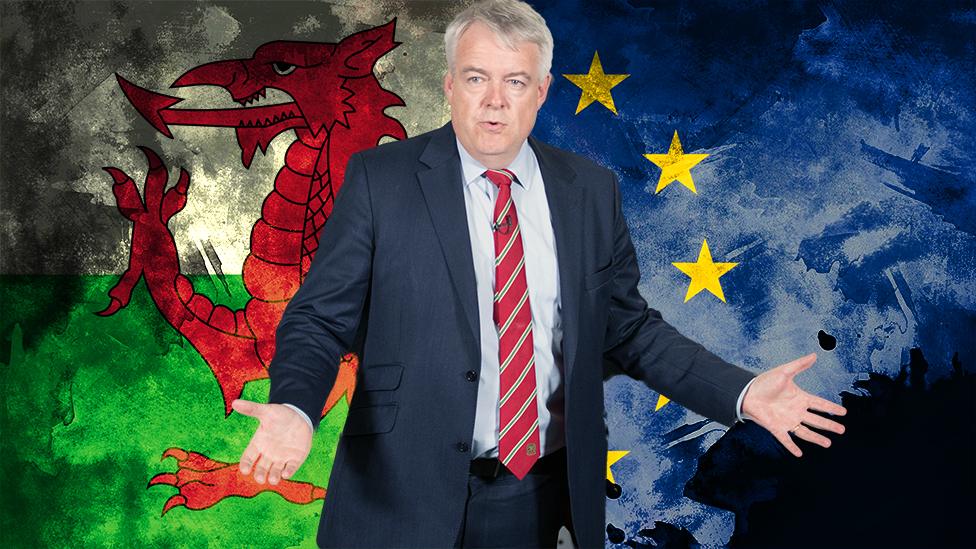
The way power is shared in the UK needs to change radically to ensure the union survives "new tensions" created by Brexit, First Minister Carwyn Jones has said in a speech in Chicago.
Otherwise "nothing, up to and including the break up of the UK... would be inconceivable", he argued.
Mr Jones is touring the United States to promote Welsh business.
The Conservatives called the speech a "betrayal" of the people of Wales that would harm inward investment.
The first minister said on Friday that, while Leave campaigners in the UK government have an "absolute duty" to honour pledges that Wales will not be worse off financially outside the EU, that alone is not enough.
Mr Jones told an audience at the Chicago Council on Global Affairs:, external "I believe the process of withdrawal must be accompanied by a reformed governance of the United Kingdom for the long term.
"There can be no return to the old constitutional status quo, where the United Kingdom was one of the most centralized states in the developed world.
"But we have to embrace the new reality with fresh constitutional thinking if our British Union is to survive the new tensions created by EU exit.
"Unless we take this seriously, nothing - up to and including the break up of the UK into its component parts - would be inconceivable."
'Needless harm'
Mr Jones said the UK's disintegration is not something he wants, but stressed "scenarios that seemed little more than political fantasies a few years ago could become plausible if we fail to make the radical changes necessary to put the UK's constitution on a sustainable footing".
In June, he suggested there could a new federal arrangement of the UK nations to avoid Wales being seen as "some sort of annexe to England".
In Friday's speech, Mr Jones also said Wales remains "open for business", but repeated his call for the UK to "retain access" to the EU single market or risk "needless economic harm on our country and our citizens".
Responding for the UK government, a Wales Office spokesman said its ministers were "working across government and internationally to open up new opportunities for Welsh businesses".
The spokesman added: "The people of Wales voted to leave the European Union and the UK Government, working with the Welsh Government, local authorities and other bodies, will deliver positive outcomes for the country.
"One of the new Prime Minister's first visits was to Wales where she underlined her commitment to the country's success post-Brexit."
'Unforgivable'
Welsh Conservative leader Andrew RT Davies accused Mr Jones of an "unforgivable betrayal of the people of Wales" that could "only harm prospects for inward investment".
In one of his strongest attacks on the first minister, Mr Davies said: "There is a time and a place to discuss constitutional issues, but Carwyn Jones is supposed to be in America to sell Wales to the world like never before.
"Instead, in a speech that came straight out of the Nicola Sturgeon playbook, the first minister chose to talk down the economy and to stoke greater uncertainty over the future of the United Kingdom."
Earlier, Plaid Cymru leader Leanne Wood said keeping "full membership" of the single market, rather than just access to it, was essential for Welsh exports to avoid punitive tariffs.

Analysis by BBC Wales political editor Nick Servini
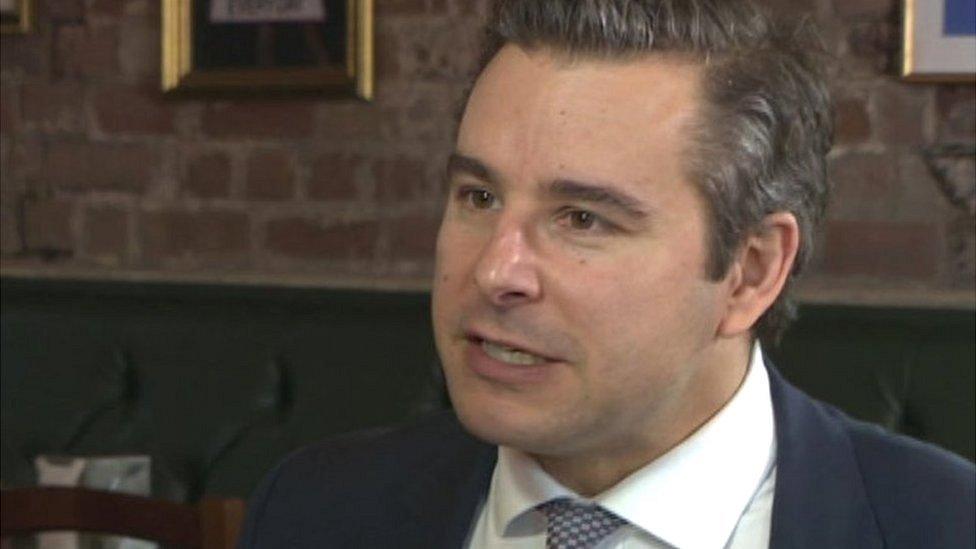
On the face of it, this does sound like a speech Scotland's First Minister Nicola Sturgeon would deliver.
As well saying the constitutional make-up of the UK will have to change post-Brexit, Carwyn Jones also says Wales will not give its consent to any deal unless there is access to the European single market.
The problem is that Wales was the only one of the devolved nations to vote to leave, in almost exactly the same way as England.
Mr Jones' challenge will be persuading people in Wales that membership of the single market is important enough to scupper Brexit when many voted to leave, knowing full well that the terms of international trade could change.
The call for a more federal structure is familiar territory for the first minister but he restates it now at a time when there will be presumably far greater priorities for Theresa May's government as it looks to takes Britain out of the EU.
- Published8 September 2016
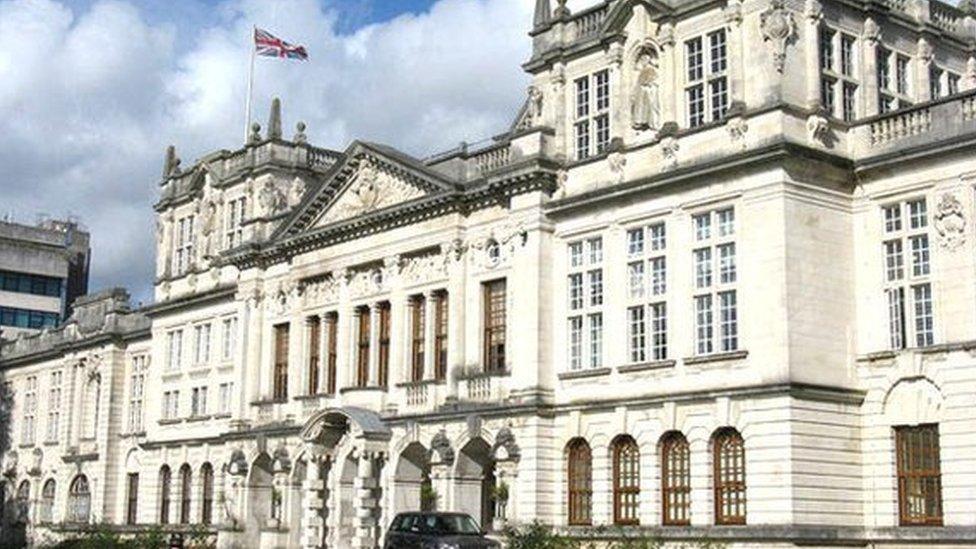
- Published5 September 2016
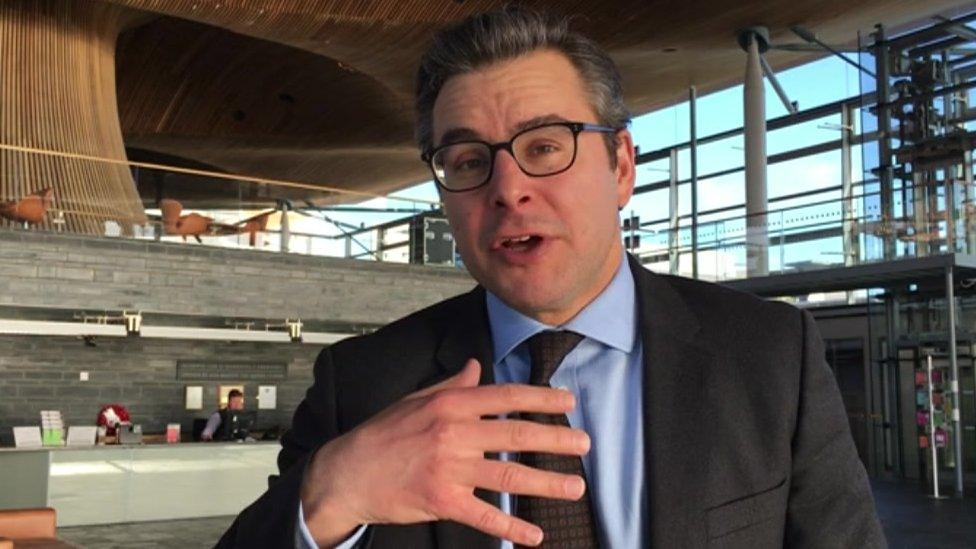
- Published5 September 2016

- Published30 August 2016
